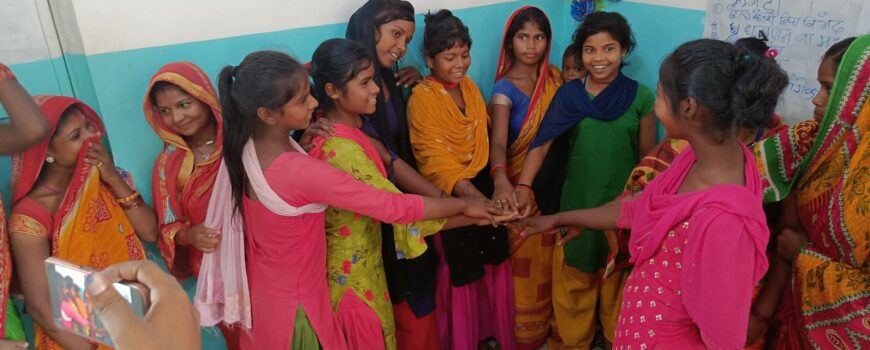
SAP Nepal with the financial support of UNDEF and in collaboration of respective four municipalities and Nepal Musahar Association, conducted a 2-day “Gender Transformative Harmful Social Norm Behavior Change training” for 150 Musahar households of four municipalities of Sarlahi on different dates from 1 June to 6 July of 2022. This training was targeted towards entire family members of selected Musahar household with a belief that changes should begin from home. The Key objective of the training was to bring about positive transformation in harmful social norms and societal behavior that are hindering the leadership role of the Musahar women and promote practice of participatory decision making in the household as well as society.
In the core training session, the participants discussed on the existing social harmful norms including child marriage, gender-based violence, alcoholism, untouchability and discrimination to understand the severity and impacts of the harmful social norm that is being practiced knowingly or unknowingly. Total of 893 participants were sensitized about the harmful social norms existing in the Musahar community.
As an immediate impact of the session, youths as well as parents participating committed on not engaging in child marriage. The male participants also committed on quitting smoke and alcohol consumption along with reflecting on their understanding how these habits has been affecting them personally as well as their family. The youths also committed to lead and conduct campaigns against the harmful social norms such as untouchability, campaign for increasing vital registration of Musahar community and school enrollment of Musahar children, and cleaning campaign to keep the surrounding clean. They also committed to help female member of their family in household chores which was earlier considered sole responsibility of female. The male participants also committed to consider female member in household decision making. Additionally, the ward members invited in the trainings also made commitments for the upliftment of the marginalized Musahar community. Hari Bahadur Thapa, ward chair of Haripur-8 committed to provide NRs. 3,00,000 for income generation of Musahar women. Similarly, ward chair of Haripur-9 committed to provide local government budget for community farming along with providing training for the same. The local government representatives invited in the training found this training to be very effective and suggested that such training should be replicated for larger positive impact.

